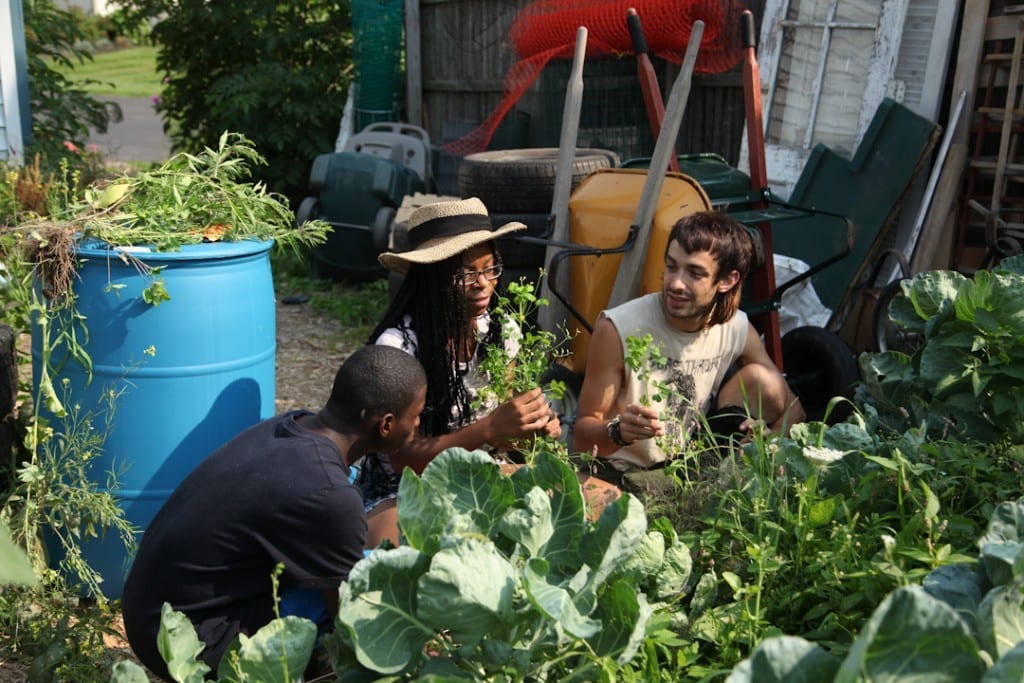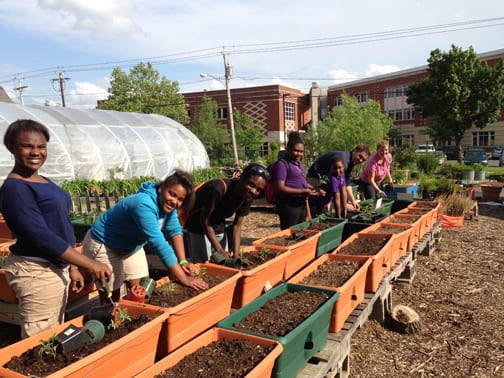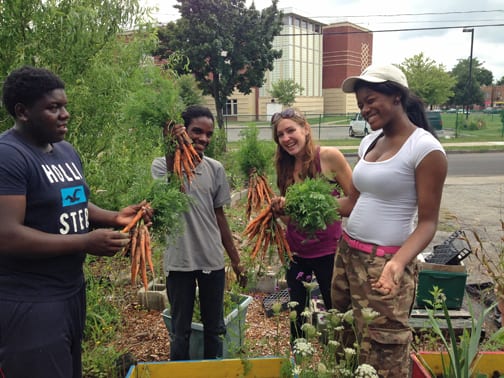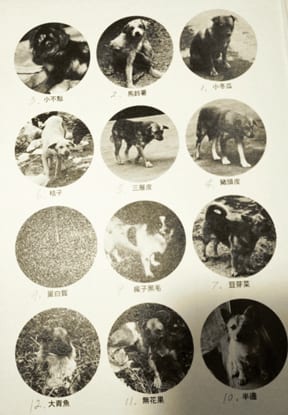ASLE is proud to announce the winners of our ASLE grants in three categories. Community Grants seek to support projects that will help build connections between the environmental humanities and place-based environmental organizations working outside the academy. Translation Grants were established in order to support work in ecocriticism from international scholars and to expand exchanges across cultures and continents. Book/Article/Media Project Subvention Grants were created to support innovative projects in ecocriticism and the environmental humanities. This is the second year of a three-year pilot program.
Community Grant:
ASLE members Leila Nadir and Cary Peppermint from the University of Rochester have received a $5,000 grant to collaborate with Seedfolk City Farm, an environmental and food justice nonprofit, and the Gandhi Institute, an environmental and social justice nonprofit, on their project entitled “Social Practice and Food Justice from the University of Rochester to the 19th Ward.” This collaboration takes as its starting point a social practice artwork by EcoArtTech, called OS Fermentation Salon, which is part of a series of social performances that work collaboratively with local communities (human, bacterial, and ecological) to resuscitate historic food practices and facilitate recover from “industrial amnesia.” See http://ecoarttech.org/project/fermentation/ for more information.
This project plans to build ecological community across the hyper‐segregated city of Rochester, New York, from the privileged space of academia to one of the poorest neighborhoods in the United States. It will bring together undergraduate students studying sustainability and local youth working to fight food insecurity to create a collaborative agricultural experience responding to the issues of food justice, racial and class segregation, and the relationship of institutions of higher learning to their local communities. Community partners are Seedfolk City Farm, a multi-site urban farm based in Rochester, NY that engages youth through project-based learning in city neighborhoods facing food insecurity, and the M.K. Gandhi Institute for Nonviolence, the site of a Seedfolk City Farm garden and a nonprofit working to realize the vision of its historic namesake, including peace and sustainability.
By creating a platform for undergraduates and local at-risk youth to learn and work together, they plan to address the following issues:
- Food deserts, food insecurity, and food justice in the city of Rochester
- The role of local urban agriculture, as well as youth, in a sustainable society
- The relationship of institutions of higher learning to their local non-academic communities and the issues faced by local residents
- The role of art, the humanities, and creative communities in the work of imagining sustainability and democracy
Funds will help provide stipends to Seedfolk youth workers and a staff coordinator, and purchase farming supplies and fermentation workshop supplies. The project will take place in the fall semester of UR’s 2016/2017 academic year.
Leila Nadir, Lecturer, Sustainability & Environmental Humanities, University of Rochester and Cary Peppermint, Assistant Professor, Art & Art History, University of Rochester, are members of the Sustainability Program faculty at the University of Rochester. They have been working together for over a decade to investigate contemporary experiences of food, ecology, media, and memory. Working simultaneously as artists, teachers, and critics, and sometimes known as EcoArtTech, they create participatory situations and social sculptures that facilitate recover from a cultural memory disorder that they call “industrial amnesia.” Through open-ended, experimental collaborations with the public, their projects bring endangered food and environmental practices into poetic visibility, feeling-perception, and the simple acts of everyday life and have taken form as architectural interventions and urban wilderness tours, net art and public performances, scholary articles and poetic essays.
Translation Grants:
Swarnalatha Rangarajan and Sreejith Varma received $1000 to support their translation of Mayilamma: Oru Jeevitham, a life-narrative of Mayilamma, a tribal woman leader of the anti-Coca-Cola struggle in Plachimada, from the Malayam into English. This translation project (tentatively titled Mayilamma: The Life of a Tribal Eco-Warrior) seeks to bring this very important regional text in Malayalam into the arena of international environmental justice ecocriticism. The localism of environmental justice that this narrative reveals opens out into multiple international dimensions since this life story translates the mantra of ecology (everything is connected) into a web of concrete relations that includes not only the ecological, but also the cultural, economic and political processes. The imbrications of the social and the ecological in the Global South environments pose important questions for environmental justice ecocriticism. The complex relationship between literary texts from developing regions of the world and the threatened environments that produced them suggest the need for new practices of reading regarding both the texts themselves and the place of humans in nature more generally. Ecocriticism from these spaces examines the close relationship between “ecology and the politics of survival” (to use the title of Vandana Shiva’s 1991 book). It takes upon itself the task of articulating the socio-ecological plight of the world’s poor by drawing attention to the fact that uneven patterns of neoliberal development in the Global South threaten the millions who depend upon access to natural resources for their survival. Mayilamma: Oru Jeevitham is an important text that maps the rise of environmental activism in Kerala and it also weaves into its rhetoric the realities of consumption, globalisation, widening socio-economic inequalities and rising ecological burdens borne by the marginalised poor.
Sreejith Varma is a Ph.D student at the Department of Humanities and Social Sciences, Indian Institute of Technology Madras, Chennai working on Green Subaltern Writing in Malayalam. His translation of two Malayalam short stories by Narayan, the first tribal fiction writer from Kerala, has appeared in the journals eDhvani and Muse India. He is also the first prize winner of the 2007 Poorna-Uroob Award for Best Short Story in Malayalam.
Swarnalatha Rangarajan is Professor of English at the Department of Humanities and Social Sciences, IIT Madras. She was a Fulbright Pre-doctoral fellow at Harvard University in 1999-2000 and was awarded her PhD from the University of Madras in 2002. She is the founding editor of the Indian Journal of Ecocriticism (IJE) and is on the editorial board of ISLE (Interdisciplinary Studies in Literature and Environment). She was awarded the Charles Wallace Fellowship at CRASSH (Cambridge University) in 2013 to pursue a book project on ecocriticism. She has edited two books, Ecoambiguity, Community, and Development (2014) and Ecocriticism of the Global South (Lexington Books, 2015) with Scott Slovic and Vidya Sarveswaran. Her first novel, Final Instructions, was published by Authorspress.
Professor Chia-ju Chang and her translation partner, Steven Mai, received a 2015 ASLE translation grant of $1000 for their project on Liu Ka-shiang’s The Hill of Stray Dogs, an animal ethnography in a diary format that records a group of feral dogs’ lifeworld in their colony in a residential community in Taipei before the garbage dumps they made their home disappeared. Stray dogs living on the streets in densely populated urban centers have been a serious social, environmental and animal rights problem for the local governments in many big cities outside of the Anglo-American world. Taiwan is no exception. Instead of adopting other means of addressing the stray dog population, the Taiwanese government has been campaigning to exterminate them. With the much-applauded new garbage disposal policy implemented in 1996 pushing Taipei to reduce the amount of food dumped, the population of stray dogs has been greatly reduced via starvation. In addition to his innovative mixed genre exploration that renders a sense of realism and reaches a wider audience, the author wants to not only raise public awareness of the dire living condition of urban strays, but also to challenge his readers with his urban ecological vision. He asks in the book: “Don’t these dogs deserve a right to live? Can we urbanites learn to co-exist with these stray animals?”
Liu Ka-shiang (Pinyin: Liu Kexiang, 1957- ), father of Taiwan’s nature writing, remains one of the most important and prolific nature writers in Taiwan. He has published more than thirty books and anthologies in the genres of poetry, prose, novels, geo-cultural history, travelogue, etc., culminating in numerous literary prizes in Taiwan. Liu has produced five animal novels, the animal characters in his works range from feral dogs and squirrels to albatrosses and whales.
Chia-ju Chang is Assistant Professor of Chinese, Department of Modern Languages and Literatures at Brooklyn College, CUNY, and the author of The Global Imagination of the Ecological Communities: Western and Chinese Ecocritical Praxis, Jiangsu University Press, November 2013.
Steven Mai received his Master of Science – Translation (Chinese – English) from the New York University School of Professional Studies in May 2015, and now is the Chinese Languages Management Group LLC, New York, Founder/Translator
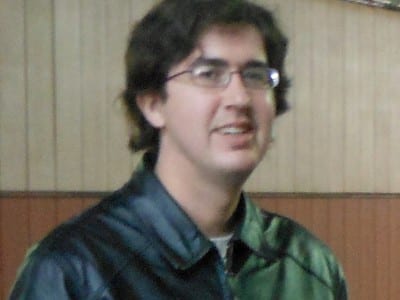 Brian Fox has been awarded a grant of $1000 from ASLE to translate a 1916 environmental novel, El terruño, by Uruguayan author and rural activist Carlos Reyles, into English. The novel focuses on several conflicting environmental attitudes and resolves these conflicts through the transformation of the main character. El terruño is an environmental novel that recounts the story of doña Ángela and her family on a farm in rural Uruguay at the turn of the twentieth century. “Terruño” is a Spanish word that refers to a plot of land, although it can be used in a more general sense to signify one’s homeland. The central conflict arises from the opposition of environmental attitudes present in the novel (i.e. urban wastefulness and rural sustainability). With the help of this grant, Dr. Fox plans to publish his work and further the availability of environmental texts in English.
Brian Fox has been awarded a grant of $1000 from ASLE to translate a 1916 environmental novel, El terruño, by Uruguayan author and rural activist Carlos Reyles, into English. The novel focuses on several conflicting environmental attitudes and resolves these conflicts through the transformation of the main character. El terruño is an environmental novel that recounts the story of doña Ángela and her family on a farm in rural Uruguay at the turn of the twentieth century. “Terruño” is a Spanish word that refers to a plot of land, although it can be used in a more general sense to signify one’s homeland. The central conflict arises from the opposition of environmental attitudes present in the novel (i.e. urban wastefulness and rural sustainability). With the help of this grant, Dr. Fox plans to publish his work and further the availability of environmental texts in English.
Brian Fox received his Ph.D. in Spanish from the University of California, Riverside in 2013, and is currently an Adjunct Professor in the English Department at University of Nevada, Reno.
Subvention Grants:
Stephanie Posthumus and Stefan Sinclair received $800 of funding to assist with the building of interactive environmental humanities digital exhibits that will brings together two fields that are already highly interdisciplinary—the environmental humanities and the digital humanities. The roots of this project began at the Digital Environmental Humanities Workshop held at McGill University in September 2013, where scholars in the environmental humanities came together with digital humanists to discuss the possibility of creating a new network. This gave birth to the DEH website that includes a number of useful features such as member profiles organized by research area, videos from the workshop, and an extensive bibliography of tagged works in the environmental humanities. The project has since evolved in a new direction, with the exploration of topic modeling and visualization to get a better idea of the relationships between disciplines in the environmental humanities, what themes are most prevalent in each of the disciplines, and the changing nature of interdisciplinarity in the environmental humanities
The most recent development of the project has been the creation of digital exhibits to showcase work in the environmental humanities. Three prototypes are currently posted on the digital environmental humanities website. They plan to build three more exhibits, working with participants of a second workshop Entitled “Digital Publics and the Environmental Humanities,” held at the ALECC conference in August 2014 and organized by Professors Posthumus and Lousley (Lakehead University). Given the open access nature of the digital exhibits, they intend that the research project will reach academic and non-academic audiences alike. Funding will be used to help pay a student researcher to complete the exhibit.
Stephanie Posthumus is Assistant Professor of French in the Department of Languages, Literatures, Culturesat McGill University. She is the author of La Nature et l’écologie chez Lévi-Strauss, Serres, Tournier. Saarbruck: Éditions universitaires européennes, 2010, and editor with Louisa Mackenzie of French Thinking about Animals. East Lansing: Michigan State UP, 2015. Stefan Sinclair is Associate Professor of Digital Humanities at McGill University. His numerous publications related to research and teaching in the Digital Humanities include Visual Interface Design for Digital Cultural Heritage, co-authored with Stan Ruecker and Milena Radzikowska (Ashgate 2011).
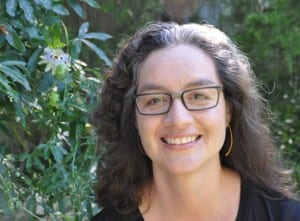 Priscilla Solis Ybarra has been awarded $800 to support the publication of The Good Life: Mexican American Writing & the Environment, 1848-2010 (University of Arizona Press, forthcoming 2015). While environmentalism has long called for more diversity, Chicana/o literary studies rarely concerns itself with green discourse. This book fills this gap, adding the Mexican American voice to ecocriticism, and it shows Chicana/o Studies the relevance of an environmental lens. Mexican American literature does not simply bring this ethnic group into the ecocritical conversation; it challenges some of ecocriticism’s central assumptions. First, Mexican American literature insists on the dual critique of modernity and coloniality, rather than the conventional environmental critique of modernity alone. Second, Mexican American literature shows that justice is not the only way to include ethnic American literature in the environmental conversation. Mexican American literature brings the concepts of dignity and respect to the table, complementing today’s emphasis on justice. Dignity and respect enhance reciprocal and proactive relations among humans and nature, rather than resorting only to rules and legislations that are often violated and manipulated. The book uses the lenses of decoloniality and Chicana feminism to make these arguments.
Priscilla Solis Ybarra has been awarded $800 to support the publication of The Good Life: Mexican American Writing & the Environment, 1848-2010 (University of Arizona Press, forthcoming 2015). While environmentalism has long called for more diversity, Chicana/o literary studies rarely concerns itself with green discourse. This book fills this gap, adding the Mexican American voice to ecocriticism, and it shows Chicana/o Studies the relevance of an environmental lens. Mexican American literature does not simply bring this ethnic group into the ecocritical conversation; it challenges some of ecocriticism’s central assumptions. First, Mexican American literature insists on the dual critique of modernity and coloniality, rather than the conventional environmental critique of modernity alone. Second, Mexican American literature shows that justice is not the only way to include ethnic American literature in the environmental conversation. Mexican American literature brings the concepts of dignity and respect to the table, complementing today’s emphasis on justice. Dignity and respect enhance reciprocal and proactive relations among humans and nature, rather than resorting only to rules and legislations that are often violated and manipulated. The book uses the lenses of decoloniality and Chicana feminism to make these arguments.
Priscilla Solis Ybarra is Assistant Professor of Latina/o Literature, Department of English, University of North Texas. She has contributed to a number of volumes, including Critical Insights: Nature & the Environment, Environmental Criticism for the Twenty-First Century, Teaching North American Environmental Literature, and New Perspectives on Environmental Justice: Gender, Sexuality, and Activism.
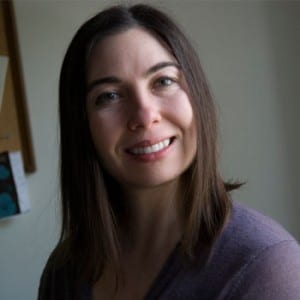 Sarah Wald was awarded $800 to pay for image permissions for The Nature of Citizenship: Race, Nature, and Contested Depictions of Farmers and Farmworkers (University of Washington Press, forthcoming in 2016). The Nature of Citizenship brings critical race theory into the heart of ecocritical inquiry. It examines representations of Californian farmers and farmworkers from the Great Depression through the present to analyze the role nature plays in the construction of legal and cultural citizenship. In telling the story of the paradoxical ways farmers and farmworkers have been represented, it exposes the process by which some people come to be seen as legitimately “American” while others are named as aliens and reveals the ways in which the categories of natural and unnatural structure the United States’ system of racial gate-keeping. The Nature of Citizenship draws from Ethnic Studies scholars’ knowledge of immigration and citizenship and from Environmental Humanities scholars’ work on race and nature. It is valuable for the way it brings an analysis of the environmental imagination into existing scholarship in Asian American Studies, Latina/o Studies, and Immigration Studies. The majority of the texts in The Nature of Citizenship have not previously been examined through the lens of ecocriticism or environmental cultural studies. The images to be included provide a unique opportunity to expand the relationship between U.S. ethnic studies and environmental literary studies.
Sarah Wald was awarded $800 to pay for image permissions for The Nature of Citizenship: Race, Nature, and Contested Depictions of Farmers and Farmworkers (University of Washington Press, forthcoming in 2016). The Nature of Citizenship brings critical race theory into the heart of ecocritical inquiry. It examines representations of Californian farmers and farmworkers from the Great Depression through the present to analyze the role nature plays in the construction of legal and cultural citizenship. In telling the story of the paradoxical ways farmers and farmworkers have been represented, it exposes the process by which some people come to be seen as legitimately “American” while others are named as aliens and reveals the ways in which the categories of natural and unnatural structure the United States’ system of racial gate-keeping. The Nature of Citizenship draws from Ethnic Studies scholars’ knowledge of immigration and citizenship and from Environmental Humanities scholars’ work on race and nature. It is valuable for the way it brings an analysis of the environmental imagination into existing scholarship in Asian American Studies, Latina/o Studies, and Immigration Studies. The majority of the texts in The Nature of Citizenship have not previously been examined through the lens of ecocriticism or environmental cultural studies. The images to be included provide a unique opportunity to expand the relationship between U.S. ethnic studies and environmental literary studies.
Sarah D. Wald is Assistant Professor of English and Environmental Studies at the University of Oregon. She has published in the journals Western American Literature and Food, Culture, and Society, and contributed to volumes including Asian American Literature and the Environment, American Studies, Ecocriticism, and Citizenship: Thinking and Acting in the Local and Global Commons, and The Grapes of Wrath: A Reconsideration.
James Warren was the recipient of an $800 grant to support the publication of Other Country: Barry Lopez and the Community of Artists (University of Arizona Press, forthcoming 2015). Other Country interprets the works of the major contemporary writer Barry Lopez (b. 1945) using an interdisciplinary approach that connects Lopez’s writings to a vibrant community of other contemporary artists. The book discusses artworks in landscape photography, painting, graphic arts, earth art, ceramics, and avant garde music, in arguing that Lopez’s connections to the community of artists move from aesthetic terms to encompass ethical and spiritual dimensions of stories, essays, and artworks. As the first book-length monograph on the work of Barry Lopez, Other Country will appeal to readers of contemporary literature of the West, particularly to Lopez’s many readers. It includes thirty-three high-resolution illustrations, with photographs by Robert Adams and Linda Connor, paintings and monotypes by Alan Magee, photographs of Richard Long’s installations and earth sculptures, photographs of Richard Rowland’s ceramic art, and two photographs by Alaska photographer Ben Huff.
Other Country Book Flyer (PDF)
James P. Warren has been Professor of English at Washington and Lee University since 1984. He is the author of John Burroughs and the Place of Nature (University of Georgia Press, 2006) and The Road to the Spring: Mary Austin’s Collected Poems (Syracuse University Press, 2014), among others.

